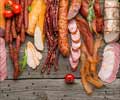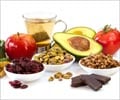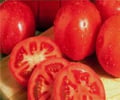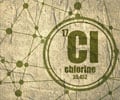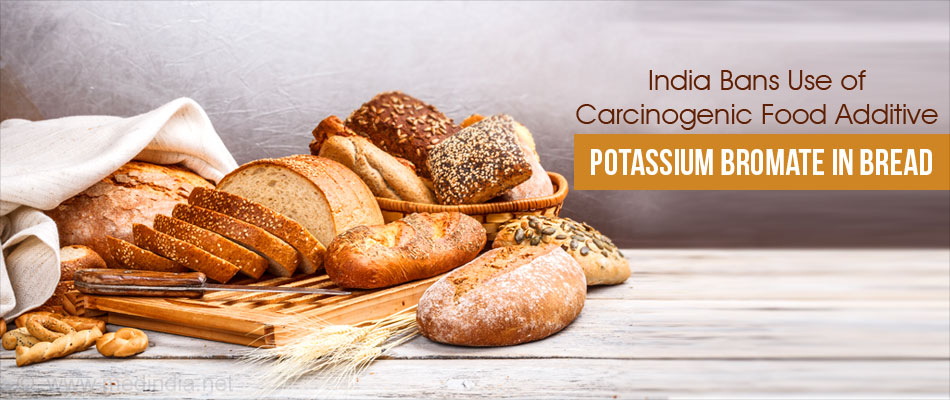
- A study reveals the presence of potassium bromate, a potential carcinogenic agent, in 84% of the bread samples tested.
- Potassium bromate is banned in many countries and considered ‘hazardous’ to health.
- Indian government bans the use of potassium bromate as a food additive in bread and other food items.
- Another substance, potassium iodate, is currently being reviewed.
Use of Potassium Bromate in Bread
Bread manufacturers use potassium bromate and iodate in bread as maturing agents and dough conditioners due to its oxidizing properties. The typical white color of bread is due to potassium bromate as this chemical bleaches the flour and creates bubbles which make the dough rise and become soft and spongy.
Potassium bromate was one of the 1100 food additives permissible for use in the Indian food industry. It was allowed at 50 parts per million for bread (maximum) and 20 parts per million for other bakery purposes.
Potassium bromate converts to another compound, potassium bromide, if it is subjected to an appropriate temperature for an appropriate length of time while baking. Failure to do either may result in the presence of potassium bromate in much higher concentrations in the final product.
A team of researchers from Japan published a study in the year 1982 that revealed that potassium bromate causes cancers of the thyroid, kidney and other organs in rats.
In 1999, the International Agency for Research on Cancer (IARC) labeled potassium bromate as a potential carcinogenic agent.
Potassium bromate exhibits oxidizing property which is the reason for its use in bread industry. The same property is responsible for its role as a carcinogen as well as in promoting the formation of active oxygen radicals.
It was banned for use as a food additive in the European Union and the United Kingdom as early as 1990. Other countries like Australia, Brazil, China, Columbia, Nigeria, New Zealand, and Sri Lanka soon followed suit.
USA and India are the only two prominent nations that had not banned its use.
In 2007, China withdrew the whole batch of potato chips from its stores across the country when they were found to contain potassium bromate. These chips had been imported from the USA.
Impact of the Ban
‘’FSSAI has banned potassium bromate. A notification has been issued in this regard. As far as potassium iodate is concerned, it has been referred to a scientific panel,’’ FSSAI CEO Pawan Kumar Agarwal commented.
This has impacted bread manufacturers and companies that operate the chains of multinational restaurants in India. A body of bread manufacturers agreed to stop the use of the chemical in bread production. The All India Bread Manufacturers’ Association has urged the FSSAI to verify the CSE report’s findings and confirm whether most breads actually contain the chemicals or not.
A large proportion of the country’s population consumes bread. This is especially true for the youths as multinational fast food joints like Domino’s, McDonald’s and Dunkin Donuts are quite popular among them. The ban is significant in preventing a routine exposure of this population to cancer-causing agents.
‘’The Authority’s quick response to what we found in our study re-establishes our stand that public health must remain a priority,’’ Chandra Bhushan, Deputy Director General of CSE said.
References:
- Govt set to ban
potassium bromate as food additive; CSE report on bread
http://www.fssai.gov.in/Portals/0/Pdf/20%20Govt%20set%20to%20ban%20potassium%20bromate%20as%20food%20additive%20;%20CSE%20report%20on%20bread.pdf -
Toxicity and Carcinogenicity of Potassium Bromate-A New Renal
Carcinogen
http://www.ncbi.nlm.nih.gov/pmc/articles/PMC1567851/pdf/envhper00420-0290.pdf



